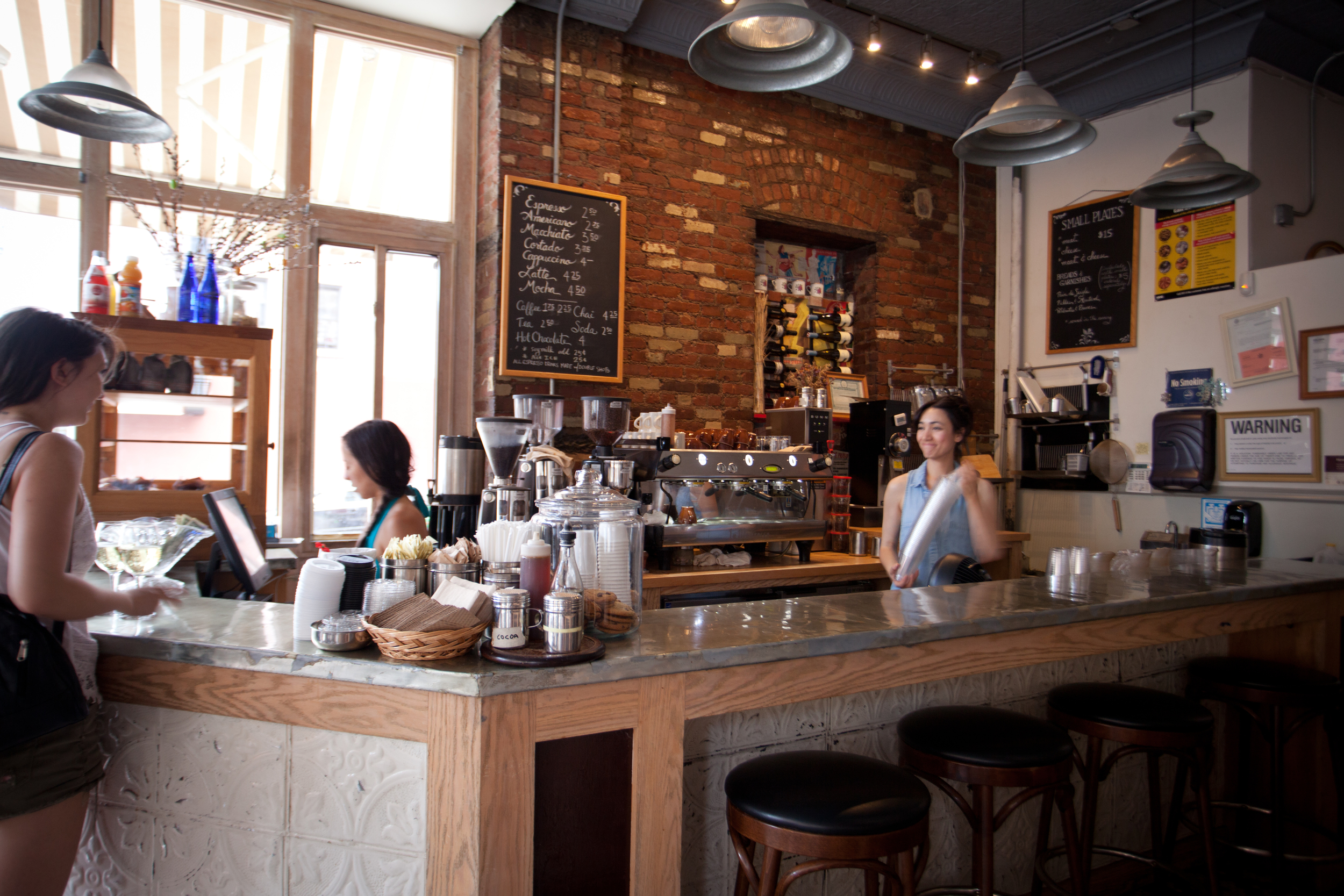“I love Blue Bottle so much! Their space is beautiful! But seriously, why do their lattes cost, like five dollars?” -Anonymous startup employee
I would like to begin this post with a disclaimer: I completely understand this perspective. One of the worst feelings in the world is being ripped off.
Whenever you stroll into a trendy-new cafe, it's understandable to assume your latte's price tag will be higher. You think because your porcelain cupped beverage is poured and created by a barista armed in cool tattoos and skinny jeans, you'll be paying more for it. But, let's be honest, your latte experience is actually much more than a hipster facade. In fact, it has much more to do with the Third Wave specialty movement, than it does with stylish nose rings and beanies.
My goal here is to explain these seemingly unjustified price tags -- that 10-200 percent markup on your coffee may be draining your piggy bank, but it's also doing a lot of good.
Some overwhelming data:
In 2011, the average citizen of Burundi, where coffee and tea are the two largest exports, made only $600. Burundi's coffee industry is entirely comprised of small, independent farms and employs 55% of the country's citizens.
That year, Starbucks paid an average of $2.38 for every pound of green (that is, un-roasted) coffee they purchased.
Compare that to what happened at the 2011 Cup of Excellence Competition in Burundi, an annual auction that rewards and highlights quality coffee growers around the world. In the auction, specialty coffee companies paid an average $8.11 per pound for the 72,000 pounds sold -- nearly three and a half times the price that Starbucks paid!
Let's do some quick hypothetical math. If in 2011, the 15,000 tons of coffee exported from Burundi went for $8.11 instead of the Starbucks rate of $2.38, Burundians would have had an additional $161 million pumped into their economy.
Though not all the coffee grown in Burundi was as high-quality as that sold in the Cup of Excellence auction, if American Third Wave specialty roasters experienced higher domestic demand for quality beans, they would undoubtedly have a larger influence in the international coffee market. This would consequently increase the selling price and expand the production of quality coffee varieties and ultimately, improve the quality of life for coffee farmers globally.
Experts have claimed that this potentially enormous capital influx would allow Burundi to invest in the infrastructure necessary to increase its production to 60,000 tons.
Specialty coffee's benefits go beyond paying premiums for exemplary beans. The employment website Glassdoor, found that the hourly base pay for Blue Bottle and Intelligentsia baristas is 33.63 percent higher than those of their Starbucks and Dunkin' Donuts counterparts.
So buying that Third Wave latte ensures that people like Burundian farmers get a fair price for their crops (and that's on top of its other benefits, like the tremendous quality discrepancy and social activism surrounding Direct Trade, Fair Trade, UTZ Kapeh, 4C, etc).
So you may think that drinking a $5 latte is your ticket into urban subculture, complete with artful latte designs and brown paper-bagged-beans. But in reality it's more than frothy, alabaster milk combined with carefully picked and freshly roasted beans. It's a farmer's ticket to a better life and your palette's to a better beverage. It's your ticket to being part of a transformative movement radically changing the wellbeing of millions of farming families around the world.
Blog post written by Nicole Bowler, San Francisco Account Manager









